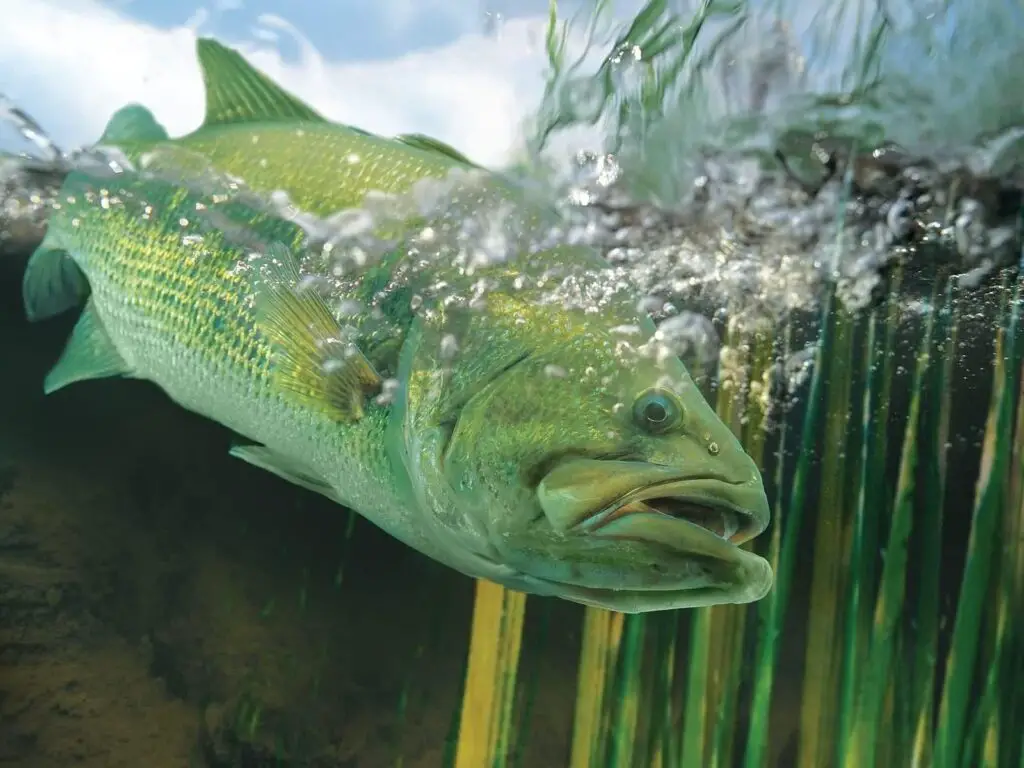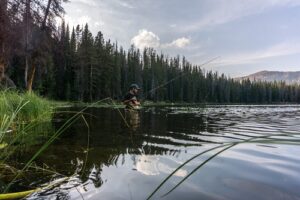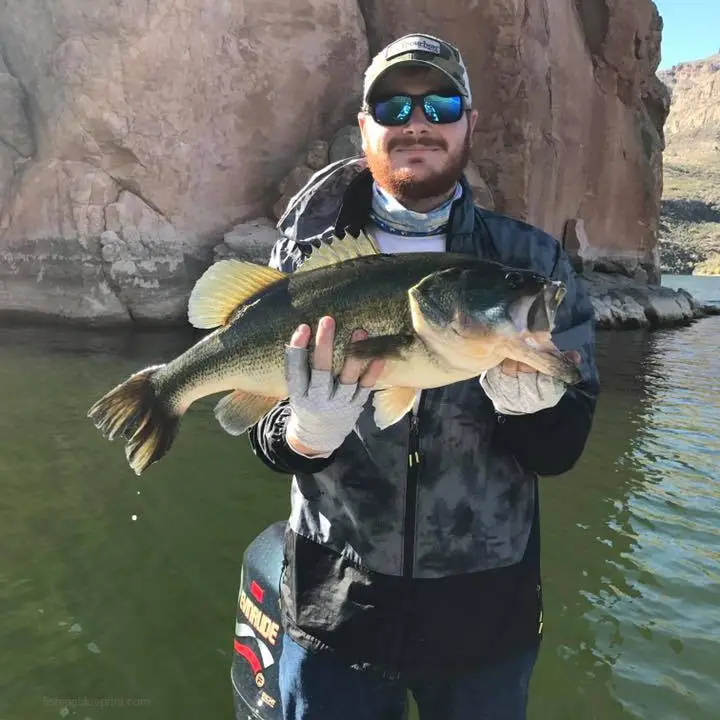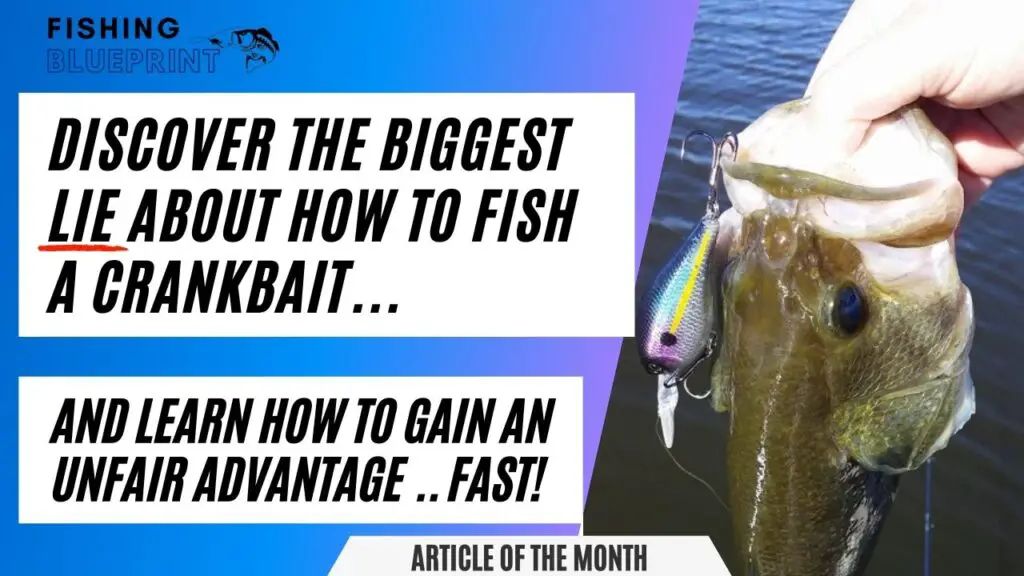
Early Spring Pre-spawn Bass Fishing Tips
Want to catch a Monster bass that could be the fish of a lifetime? Sure you do! Early spring is the best time to catch giant bass. And you’re going to learn how to do it. Listen, the bass will be at their maximum size for the year and you can’t let them getaway. But I also want to warn you, it’s not for the faint of heart. So if you accept the challenge and get the hang of it, you could catch that trophy bass that you’ll remember forever.
Like anything worth mastering, patience, understanding the process and practice, and the means to the end. When it comes to finding and catching giant pre-spawn bass takes some practice to master. But as long as you take it slow, be open to learning new techniques and trying new things, all while having fun you’ll quickly get the hang of catching pre-spawn bass. So in summary, this is what you need to do… so do the following:
- Learn what is pre-spawn
- Understand when is pre-spawn
- Know the best pre-spawn baits
- Identify where to find pre-spawn bass
- Don’t forget to avoid this one Big Problem
Depending on your skill level it could take you all spring just to learn the very basics of pre-spawn bass fishing, and sometimes it could take years to really be comfortable… that’s if you’re teaching yourself. Only to find out that’s just the tip of the iceberg, there is so much more to it! But you’re in LUCK, in 5 easy steps, I’m going to give you all the important details that I learned and include secrets the Pros don’t want you to know about, so you can quickly master how to find and to catch pre-spawn bass fast!
WARNING: There’s a lot of information about this subject you’ll probably want to come back to. No one expects you to remember all these tips. We know your time is precious, so we really tried to over-deliver in value for you. Additionally, we frequently update reports like this, so you’ll want to stay up to date with any changes or additional tips we include for you.
We found that the easiest way to save and bookmark this report so you can come back to it later is to share it on your favorite social media platform, especially if you use your phone to get important tips like the ones in this report here…
Click on your favorite social media buttons to remember this page now!
What month is Pre-spawn?
Again, pre-spawn is based on behavior versus a time of year. It often ties in with water temperature.
However in general since late spring/early winter in the upper hemisphere (like here in the United States) is considered late February-March.
The pre-spawn can come on later if the area you live in is cold like in Canada or New York, however, if pre-spawn can start earlier say if you live in Arizona or southern California.
Helpful Tip: "Locate an inside turn on a point extending off the largest flat in the lake, and you'll probably find bass staging there," explains VanDam. "During stable weather, they move up on the flat to feed, but during cold fronts, they'll pull back to the inside turns or dropoffs."
Pre-spawn water temperature
Most largemouth bass will spawn in water temperature 55-63 degrees, whereas smallmouth will spawn in water temperature in 50-58 degrees.
The different species of bass spawn at different times and temperatures to allow flexibility and to avoid spawning during radical environmental swings such as drought, severe swings in water temperature, and changes in water level or clarity.
Step 1: Where to find pre-spawn bass
Here’s a helpful list of where to find prespawn bass:
- Secondary creek channels – especially the swings
- Secondary points
- Docks or other hard structures like rip-rap banks located between the spawning flats and the mouth of the creek
- Wood – in the form of laydowns, or vertical timber near the spawning flats
- Brush piles
- Secondary creek channel drop offs
- Humps or high spots
During the winter bass will most commonly spend their time in an area avoiding large fluctuations in temperature.
These areas are called “Wintering Areas”. Wintering areas also offer the bass to eat without exerting a lot of energy chasing down a baitfish.
Frequently wintering areas will be located near the mouth of main-lake coves, near cliffs or bluff walls, humps, ledges, areas that have vertical timber near spawning flats or located near spawning flats that have near-vertical drop-offs.
If the lake is dingy then the bass will typically hold 10 to 15 feet of water or possibly even less, whereas if the lake is gin-clear then sometimes the fish can hold in 30 to 50 feet of water.
"The key to catch giant bass is to find the pre-spawn migration routes."
When bass sense the change in that water temperature they will use specific migration routes, kinda like highways to get to the staging area to prepare for the spawn..
Here they’ll fatten up and get ready for the spawn. Even though the bass do eat during the winter, they often will lose a lot of weight. So they’ll start to gorge themselves.
When the surface temperatures begin going up, the bass go from their winter homes to the areas in which river channels as well as deep creeks curve against points or shorelines.
Figuring out the different migration routes and finding the different staging areas is the secret to finding and catching a giant prespawn bass.
Step 2: Be Flexible
Each day can be completely different from the previous and you have to be willing to throw out the previous day’s strategy.
It’s important to remember that during this “holding/migrating mode”, the bass will change the location and migrate incredibly fast over a couple of days (over even hours).
So it’s important to make yourself very flexible and versatile to change up fishing strategies.
Sometimes the bass are hanging out in 5 to 10 feet, the next day (or even hour) you’ll find a bass has migrated and suspended over 30 ft of water.
Make A Game Plan
Keep it simple and out of all your pre-spawn lure options start by choosing only five baits during the prespawn (3) fast moving baits and (2) slow moving baits. For example: a lipless crankbait, a suspending jerkbait, and a crankbait for the fast moving choices. And a Carolina rigged lizard and a drop shot rig for the slower moving baits.
Begin with a twitching jerkbait when the water’s at its coldest.
When it begins to warm up, you can switch over to using bait that rattles like lipless crankbait as well as diving crankbait.
This lets you cover quite a bit of water. If there’s grass in the water, you’d do well to choose lipless crankbaits.
Ensure your bait tickles the grassy areas when you do your retrieve.
"If the water rises or the grass is deep, consider using a heavier half to three quarter lipless crankbait, or a deep diving jerkbait. "
Bass tend to gather alongside the grassy inside edges when they are getting ready to spawn.
Therefore, that is a great time to try dragging something such as a Carolina rigged lizard in that area. If you don’t get any bites, switch to the lipless crankbait to lure them in.
These same areas are additionally able to work well for you when it’s post spawning season.
Bass swim into the same kinds of zones when they plan to spawn in the highland lakes or Northern lakes, however gravel is what’s more of a consideration. Likewise, the fish like to spawn a bit deeper in the water than they do on the majority of lowland waterways, particularly in clear water.
Lowland Lakes Vs Highland Lakes
 In lowland lakes such as Toledo Bend and Sam Rayburn in Texas, bass will start to migrate after the water temperature goes up to the middle-50s. But, at the highland reservoirs, like Table Rock in Missouri, the fish start to migrate after the water temperatures get into the middle-40s.
In lowland lakes such as Toledo Bend and Sam Rayburn in Texas, bass will start to migrate after the water temperature goes up to the middle-50s. But, at the highland reservoirs, like Table Rock in Missouri, the fish start to migrate after the water temperatures get into the middle-40s.
Bass will find their way to the smaller creek channels, ditches or drains which give them access to the shallow water flats where they will eventually use for spawning.
If there’s grass beds or buckbrush it’s even more profitable for fishing.
Bass can be found staging in the points or ditches out from spawning zones prior to going to the beds.
Hard bottoms which flatten out at the upper end of ditches, creeks or coves are also chief spawning zones.
Locate sand or gravel or hard clay bottom areas and you will likely find some fish spawning
Choosing the best pre-spawn baits and how to catch them with it
And there’s an easier way to do it than just randomly choosing a lure and hoping it catches a bass.
Most of the time crankbaits, jigs, and soft plastic worms work great. But that’s not all…
Unfortunately, there is not enough room in this report to go over all the necessary baits, gear, and techniques. There’s just too much to go over.
That is why I created a complete list of baits you can use – along with a few helpful pointers to start catching pre-spawn bass in a hurry.
We have it down to a science… you don’t want to miss out!
Up next…

Choosing the right pre-spawn baits for the job
You've found the bass, now you have have to catch them. In the next report, you are going to be handed over the keys to unlock the secrets of what baits work the best and what baits to avoid at all costs ... (more)
Other Spring Fishing Related Articles
- PRE-SPAWN
- How To Find Pre-Spawn Bass in 2 Insanely Easy Steps
- Top 10 Pre-Spawn Bass Baits (That Get The Best Results!)
- Mike Iaconelli’s Best PRESPAWN Bass Lure of ALL TIME!
- Top 10 Best Spring Jig Fishing Tips For Bass
- Brand NEW Spring ChatterBait Fishing Secrets (90% of Anglers Don’t Know These Tricks)
- 7 Reasons The Ned Rig Sucks [Setup, Baits, Fishing Problems I Encountered]
- 17 Secret Bluegill Colored Jigs That Catch Bass Like CRAZY!
- Complete Formula For BASS FISHING DOCKS
- How To Skip A Jig [Guide To Dock Skipping]
- Complete Formula For BASS FISHING ROCKY BANKS & RIPRAP
- 5 Crucial (and Unusual) Tactics You Must Do When Bass Fishing Road Beds
- Bass Fishing POINTS [5 Quick & Easy Steps!]
- Bass Fishing Creeks The Easy Way (In Less Than 10 Minutes)
- SPAWN
- Fishing Spawning Bass [18+ Lures & Gear]
- POST-SPAWN
- [No Excuses] 7 Tips for Post Spawn Bass Fishing Success
- 10 Post Spawn Bass Lures That'll Dominate Your Day
- Late Spring/Early Summer Bass Fishing [Avoiding 3 Common Lies]
- Best Early Summer Bass Fishing Lures [Avoid These 5 BIG Mistakes]
More articles just for you...
Funny Fishing Rules, Laws, and Regulations 2025
Crazy Fishing Laws That Will Blow Your Mind! #7 is INSANE! Strange Fishing Regulations and Laws As silly as hook and rod limits may seem,
EXPOSED! How To Use A Spinnerbait The Right Way for 2025
Are You Wondering How To Use A Spinnerbait? Or How To Work A Spinnerbait Over Grass, Logs, or Points? Well, All These Questions Are Answered
EXPOSED! Best Crankbait Colors for 2025 [Which to Buy & Avoid]
What color crankbait to use? Crankbait Color Chart I just love going into a Bass Pro Shops store and just staring at all the walls
Best Underwater Dock Lights For Fishing – 2025 Buyers Guide
Night Dock Light Fishing For Beginners Dear fellow angler, Does this sound like you? You’re someone who loves fishing but just wants to escape the
15 Best Deep Diving Crankbaits [2025 Buyers Guide – Which to Buy & Avoid]
A Complete Buyer’s Blueprint On The Best Deep Diving Crankbaits for Bass, Walleye, or Striped Bass On The Market Today Fishing deep diving crankbaits can
